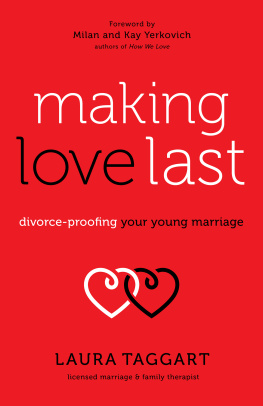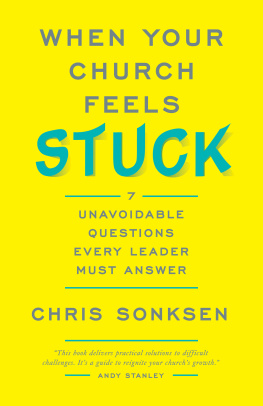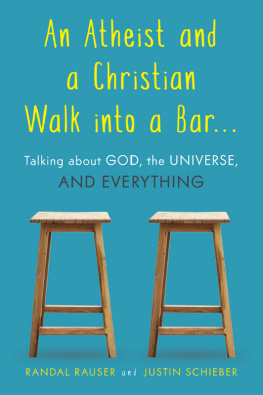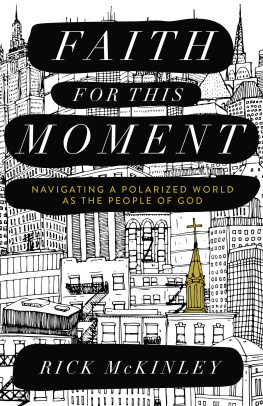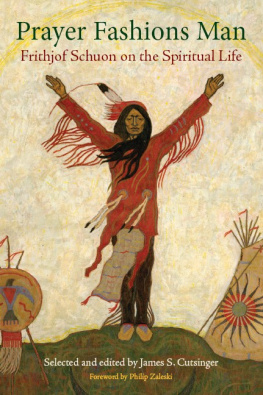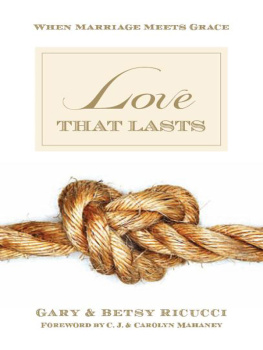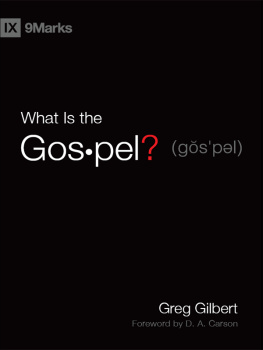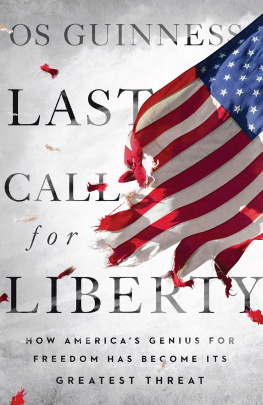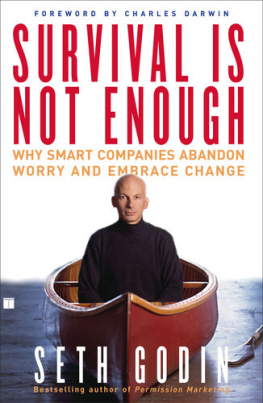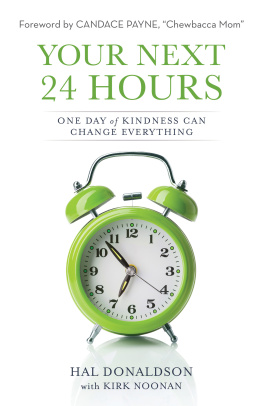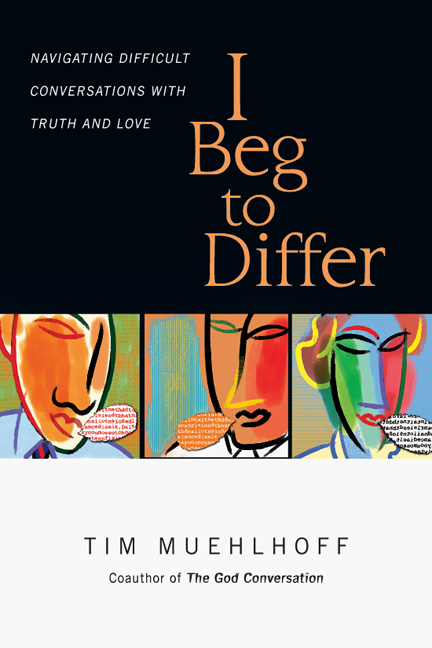Foreword
The New Testament is relentless when it comes to unity. Jesus clearly calls his followers to communities released of contempt and angerresolute in selfless devotion to the good of the other, even when the other is an enemy. And the model for the kind of unity he envisages for his disciples is none other than that found in the relationships between members of the Holy Trinity. The apostle Paul implores the church at Corinth to pursue a division-free and perfect unity of mind and judgment. The Ephesians are likewise called up into a life of loving, gentle and patient bearing of one with the other. The vision is clear. As followers of Jesus and his way, were to find our way increasingly out of dissension and into loving unity with each other.
But how?
Here, as in other areas of deep human significance, God has elected to create for his children space for the joy of discovery. If were to take seriously the injunction to pursue unity in our relationships, we must avail ourselves of the penetrating and life-giving wisdom that comes to us from the best reflections on human relatedness. We do well, then, to consider the study of communication as an accumulated body of wisdom and knowledge about how to progress toward the lofty biblical vision of unity.
As is always the case when availing oneself of an unfamiliar body of wisdom and knowledge, a guide is essential. Here is where this book comes in. Muehlhoff has given us an informed and accessible introduction to the art and science of communication in difficult situations. This book distills the theory of successful communication and offers the reader practical guidance for its application. The honest reader will frequently recognize herself in the difficult situations addressed in the book and will find in its pages practical suggestions for making progress.
Perhaps most importantly, one will find on these pages advice from an informed guide who practices what he preaches. I have found my way into disagreement with Tim on matters about which we both have passionate conviction. And Ive seen the wisdom of this book transform those potentially divisive conversations into opportunities for mutual learning and growth.
My prayer is that you too will find your way into fruitful conversation in the context of disagreement and, in so doing, will find your way further up and further into the New Testament vision of unity.
Gregg Ten Elshof
Director, Center for Christian Thought, Biola University
Author, I Told Me So: The Role of Self-Deception in Christian Living
Acknowledgments
The thoughts found in this book have been evolving for many years, and there are many to thank. Tim Downs, thank you for listening to this communication strategy when it was in its earliest stage and I was a rookie trainer at the Communication Center. Your modeling of these concepts and encouragement to put it all on paper resulted in this publication. Jon Lunde, during our many long walks you patiently listened to incomplete ideas and scattered outlines. You greatly sharpened my thoughts. Deep appreciation goes to V. J. Vonk who read every word of this manuscript and gave timely proofreading and encouragement. Miss you. The love of communication theory that hopefully is evident in this book comes from my academic mentor and friend Julia Wood. Thank you for providing me with a solid foundation and the freedom to be me. The beauty of being at Biola University is having individuals such as Todd Lewis, Chris Grace, Rick Langer, Dorothy Calley, Melanie Whitcomb, Gregg Ten Elshof, Paul Spears, Craig Hazen and J. P. Moreland to give expert and timely advice. Special shout out goes to my COMM 474 students (Spring 2012) who willingly served as test subjects for this strategy for an entire semester. Your insights fill these pages. Al Hsu, I couldnt ask for a more accessible or insightful editor. Thank you for your patience. As always, deep appreciation goes to my wife and ministry partner who for the last twenty-three years has listened to my thoughts when they were raw, disjointed and unpublished. Noreen, without you none of this would be possible.
Introduction
Two stuffed manila folders sat in front of me.
It was difficult not to stare at them. I was meeting with a couple experiencing conflict. I had asked them to come prepared to identify and discuss troublesome topics, but nothing prepared me for what they brought. Vicki and Thomas arrived in separate cars and both walked into the restaurant carrying massive manila folders. Each of them had over the years separately compiled evidence to prove the other wrong. As each one described an issue, he or she would reach into a folder and produce supporting facts. The folders were stuffed with shopping receipts, phone records, photos, business vouchers, hastily scribbled notes and even transcripts of secretly recorded conversations.
I sat stunned. During our three-hour conversation I often thought of the proverb that states, An offended brother is more unyielding than a fortified city (Prov 18:19). Over the years this couple had grown discouraged in trying to resolve issues and now were only interested in fortifying entrenched positions.
Can you relate?
While few of us have gone so far as to fill folders with evidence against a person, we all can understand the frustration of having communication break down. All of us can think of conversations that ended badly. Heading in we hoped for the best but feared the worstonly to have the worst happen. Discussing this particular topic with this person sparked defensiveness, anger and raised voices. The result? A breach occurred and an argument broke out.
Starting a quarrel, suggests an ancient writer, is like breaching a dam (Prov 17:14)participants are swept away by powerful emotions. In the wake of the argument we are left with nagging questions: How can I remain faithful to my convictions but communicate in a way that produces dialogue, not uncivil debate? How can I balance truth and love when discussing difficult issues with people who disagree with me? And what if the person Im struggling with is a spouse, family member, coworker or neighbor? The proverb admonishes me to drop the matter, not the relationship.


